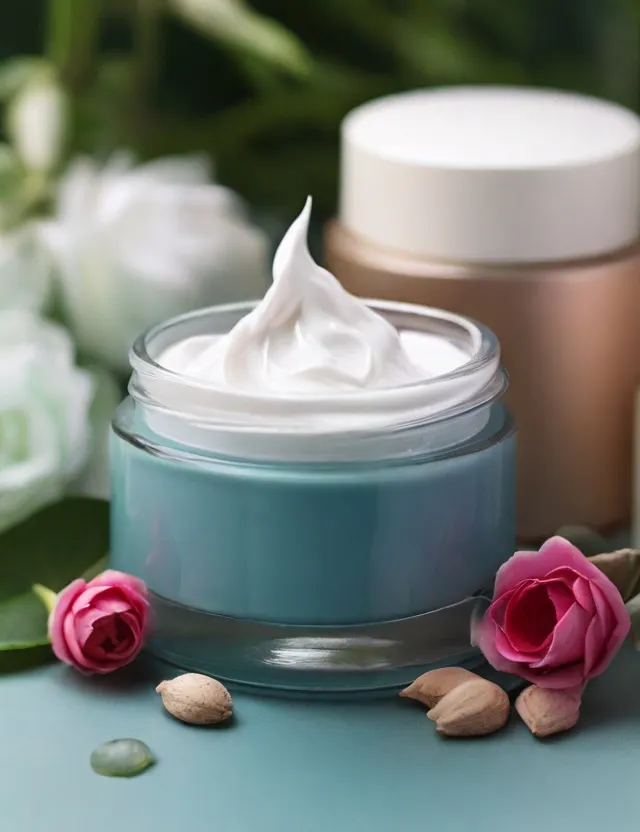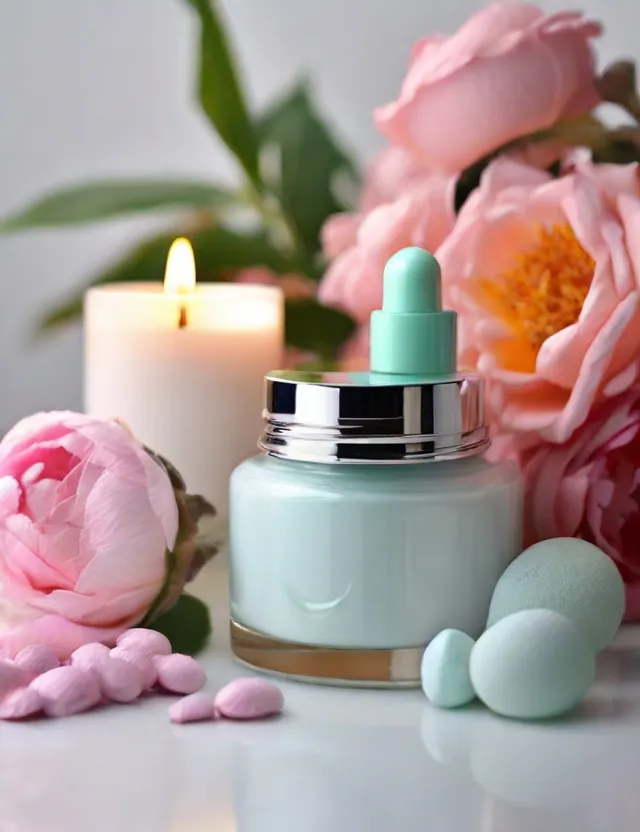How Can You Develop a Personalized Skincare Routine for Your Unique Skin Type?
How Can You Develop a Personalized Skincare Routine for Your Unique Skin Type?
Greetings, lovely readers! Developing a personalized skincare routine tailored to your unique skin type is crucial for maintaining healthy, glowing skin. With so many skincare products and routines out there, it can be overwhelming to find what works best for you. However, by identifying your skin type and understanding its specific needs, you can create a routine that will address your specific concerns and help you achieve the healthy, radiant skin you've always wanted.
Whether you have oily, dry, combination, sensitive, or aging skin, it's important to understand the characteristics of your skin type and tailor your skincare routine to address its needs. By identifying your skin type and choosing products with ingredients that are suitable for you, you can prevent common skin issues and keep your skin looking its best. So, let's dive into the essential steps and guidelines for developing a personalized skincare routine that works for your skin type!
Key Takeaways:
- Understand your skin type: Take the time to assess your skin type, whether it's oily, dry, combination, sensitive, or normal. This will help you choose the right products for your personalized skincare routine.
- Consult a skincare professional: If you're unsure about your skin type or what products to use, consider consulting a dermatologist or skincare expert who can provide personalized advice.
- Identify your skin concerns: Whether it's acne, aging, hyperpigmentation, or other issues, identify your primary skin concerns so you can tailor your routine to address them effectively.
- Choose the right products: Select skincare products that are suitable for your skin type and address your specific concerns. This may include cleansers, moisturizers, serums, and treatments.
- Establish a consistent routine: Consistency is key to achieving results. Stick to your personalized skincare routine and monitor how your skin responds to make any necessary adjustments.
Unveiling Your Skin Type
If you want to develop a personalized skincare routine, the first step is to identify your skin type. Understanding your unique skin type will help you choose the right products and treatments to address your specific needs.
The Four Basic Skin Types
Unveiling the four basic skin types—normal, dry, oily, and combination—is essential in determining the most suitable skincare routine for your individual needs. Here's a breakdown of the characteristics of each type:
- Normal: Well-balanced, neither too oily nor too dry
- Dry: Lacks moisture, often feels tight and flaky
- Oily: Prone to shine and occasional breakouts
- Combination: Has a mix of characteristics, such as an oily T-zone and drier cheeks
- Assume that you fall into one of these basic categories, but keep in mind that your skin may change over time or in response to environmental factors.
Beyond the Basics: Identifying Combination and Sensitive Skin
Basics aside, some individuals have combination or sensitive skin, which require a more nuanced approach. Combination skin may exhibit characteristics of two or more of the basic types, while sensitive skin is prone to react to certain ingredients or environmental triggers.
It is important to consider these additional factors when determining your skin type and developing a personalized skincare routine. Combination and sensitive skin require specific products and care to maintain a healthy complexion.
The Significance of a Personalized Skincare Routine
Assuming you've been using a generic skincare routine, it's time to understand the importance of tailoring your skincare to your unique skin type. Everybody's skin is different, so what works for one person may not necessarily work for another.
By creating a personalized skincare routine, you can ensure that you are addressing your specific skin concerns and achieving the best possible results.
Tailored Treatments for Better Results
On top of the world when you find the perfect skincare product, only to be disappointed when it doesn't seem to work for you? This is where a personalized skincare routine comes in. Tailoring your treatments according to your unique skin type and concerns can help you achieve better results and avoid wasting time and money on products that don't work for you.
The Impact of a Custom Routine on Skin Health
An important factor to consider when it comes to skincare is maintaining the health of your skin. A customized routine that addresses your specific needs and concerns can improve the overall health of your skin and keep it looking its best for longer.
Plus, a tailored skincare routine can help prevent issues such as breakouts, dryness, and irritation, and ensure that your skin is receiving the care it needs to stay healthy and radiant.
Starting with the Basics
Keep your skincare routine simple and build from there. Start by understanding your skin type and what it needs. Whether you have oily, dry, combination, sensitive, or normal skin, a basic routine will help you get a clear understanding of what your skin requires.
Daily Skincare Essentials for Every Skin Type
Type Regardless of your skin type, there are a few essentials that should be part of your daily skincare routine. Cleansing, moisturizing, and applying sunscreen are crucial steps that everyone should include in their routine. Cleansing helps remove dirt, oil, and makeup from your skin, while moisturizing keeps your skin hydrated and protected. Sunscreen is an essential step in protecting your skin from harmful UV rays.
Adjusting the Core Routine to Your Skin’s Needs
Skin Once you've established a basic skincare routine, it’s important to adjust it to cater to your skin’s specific needs. If you have dry skin, you may need a heavier moisturizer, while those with oily skin may benefit from products with ingredients like salicylic acid or niacinamide to control oil production.
Starting with a basic routine will give you a good foundation, but it’s crucial to understand that each person's skin is unique, and what works for one person may not work for another. It may take some trial and error to find the right products and routine for your skin, but being patient and observant will help you develop a personalized skincare routine that caters to your unique skin type.
Advanced Skincare Strategies
Unlike basic skincare routines, advanced skincare strategies focus on targeting specific skin concerns and achieving optimal skin health. By incorporating advanced techniques and products into your routine, you can take your skincare to the next level and truly personalize it to meet your skin's unique needs.
Exfoliation: Types and Frequency
One of the key components of an advanced skincare routine is exfoliation, which helps to remove dead skin cells, improve skin texture, and stimulate cell turnover. There are two main types of exfoliation: physical and chemical. Physical exfoliation involves using a scrub or exfoliating tool to physically remove dead skin cells, while chemical exfoliation uses acids or enzymes to dissolve and remove dead skin cells.
The frequency of exfoliation depends on your skin type and the products you're using, but typically, normal to oily skin can exfoliate 2-3 times a week, while dry or sensitive skin may only need to exfoliate once a week. Perceiving your skin's response to exfoliation is essential to avoid over-exfoliating, which can lead to irritation and sensitivity.
Physical Exfoliation - uses a scrub or exfoliating tool to physically remove dead skin cells.
Chemical Exfoliation - uses acids or enzymes to dissolve and remove dead skin cells.
Normal to Oily Skin 2-3 times a week
Dry or Sensitive Skin - Once a week
Risk of Over-Exfoliation - May lead to irritation and sensitivity

Serums and Specialty Products: Choosing What Works for You
The use of serums and specialty products is another advanced skincare strategy that can target specific skin concerns such as fine lines, hyperpigmentation, acne, and more. The key to choosing the right products is to identify your specific skin concerns and goals, and select products that contain active ingredients proven to address those concerns.
The consistency and ingredients of the products you choose will depend on your skin type and desired results. The right serums and specialty products can complement your basic skincare routine and provide targeted treatment for your unique skin needs.
Serums are formulated with a higher concentration of active ingredients and are designed to penetrate the skin at a deeper level than moisturizers. When selecting serums and specialty products, it's important to look for antioxidants, retinoids, hyaluronic acid, niacinamide, and other beneficial ingredients that can address your specific skin concerns and improve overall skin health.
The Role of Lifestyle in Skincare
Not just what you put on your skin, but also your lifestyle habits can greatly impact the health and appearance of your skin. From your diet to your stress levels, everything plays a role in maintaining a glowing complexion.
Diet and Hydration: Fueling Your Skin from Within
With a balanced diet and adequate hydration, you can nourish your skin from the inside out. Healthy fats, vitamins, and antioxidants can help maintain the elasticity and overall health of your skin. Likewise, staying well-hydrated is essential for keeping your skin plump and youthful.
Sleep, Stress, and Exercise: The Holistic Approach to Skincare
From managing your stress levels to getting enough sleep and regular exercise, taking a holistic approach can promote skin health as well. Stress can trigger breakouts and accelerate aging, while exercise can improve circulation and promote a healthy glow.
Sleep is crucial for skin repair and regeneration, and insufficient sleep can lead to dullness and fine lines. By prioritizing these aspects in your lifestyle, you can support your skin in looking its best.
Tracking Your Skin's Progress
Now that you've established a personalized skincare routine for your unique skin type, it's important to track your skin's progress to see how it's responding to the products and treatments you're using. By keeping a skincare diary and understanding and responding to changes in your skin, you can make necessary adjustments to your routine and ensure that you're achieving the best results.
Keeping a Skincare Diary
Your skincare diary is a valuable tool for tracking the effects of your skincare routine on your skin. Keep a record of the products you use, how your skin feels after using them, any changes you notice in your skin's texture, tone, and appearance, and any new developments such as breakouts or dry patches. By consistently documenting your skin's condition, you'll be able to identify patterns and determine which products are benefiting your skin and which may be causing adverse reactions.
Understanding and Responding to Changes in Your Skin
Skincare routines are not static, and it's normal for your skin's needs to change over time. Pay attention to any changes in your skin, such as increased sensitivity, breakouts, excessive dryness or oiliness, and adjust your skincare routine accordingly. Be mindful of external factors such as weather, stress, and diet that can also impact your skin, and make changes as needed to optimize the health and appearance of your skin.
To effectively track your skin's progress, continue to monitor your skin's response to your skincare routine, make adjustments as necessary, and seek professional guidance if you experience persistent issues or concerns. Remember that achieving healthy, balanced skin is an ongoing journey, and with dedication and attentiveness, you can achieve the glowing, radiant skin you desire.
Overcoming Common Skincare Challenges
After developing a personalized skincare routine based on your unique skin type, you may still encounter some common skincare challenges. These challenges can include breakouts, irritation, and sensitivities, as well as the need for seasonal adjustments and addressing aging concerns.
Breakouts, Irritation, and Sensitivities: Tips and Tricks
With breakouts, irritation, and sensitivities, it's important to take a gentle approach to skincare. Use products specifically formulated for sensitive skin and avoid harsh ingredients such as alcohol and fragrances. Keep your skincare routine simple and consistent, and be sure to keep your hands off your face to avoid spreading bacteria. Assume that a breakout or irritation is a sign that a product may not be suitable for your skin, and discontinue use to avoid further problems.
Seasonal Adjustments and Aging Concerns
One key aspect of skincare is the need to make seasonal adjustments to your routine. For example, in the winter, you may need to use a heavier moisturizer to combat dryness, while in the summer, a lighter moisturizer may be more appropriate. Additionally, aging concerns such as fine lines and wrinkles may require the use of targeted anti-aging products.
Irritation may occur if you don't adjust your skincare routine to suit changes in weather and aging concerns. It's important to pay attention to how your skin responds and make appropriate adjustments to your routine to address these issues.

So, How Can You Develop a Personalized Skincare Routine for Your Unique Skin Type?
Creating a personalized skincare routine can seem overwhelming, but it's essential for maintaining healthy, glowing skin. By identifying your unique skin type and understanding its specific needs, you can tailor a regimen that addresses your concerns and helps you achieve your skincare goals. Whether you have dry, oily, combination, or sensitive skin, there are steps you can take to develop a routine that works for you. By researching and experimenting with different products and techniques, you can find the perfect combination that leaves your skin looking and feeling its best. For more tips and advice on creating a personalized skincare routine, check out this helpful article on
Skincare Routine 101: Creating a Personalized Regimen for Healthy Skin.

FAQ
Q: What is a personalized skincare routine?
A: A personalized skincare routine is a regimen tailored to an individual's unique skin type, concerns, and goals. It involves using specific products and techniques to address specific skin needs.
Q: How can I determine my skin type?
A: You can determine your skin type by observing how your skin feels throughout the day. Oily skin may feel greasy, dry skin may feel tight, normal skin feels balanced, and combination skin may have areas of both oiliness and dryness.
Q: What products should I include in my personalized skincare routine?
A: The products you include in your routine will depend on your skin type and concerns. However, a basic routine typically includes a cleanser, exfoliant, moisturizer, and sunscreen. Additional products such as serums, masks, and treatments can be added as needed.
Q: How do I choose the right products for my skin type?
A: It's important to choose products formulated for your specific skin type. Look for labels that indicate whether a product is designed for oily, dry, combination, or sensitive skin. Consulting with a dermatologist or skincare professional can also help guide your product selection.
Q: How can I adjust my personalized skincare routine over time?
A: Your skin's needs may change over time due to factors such as aging, hormonal changes, and environmental influences. Periodically reassess your skin type and concerns, and adjust your routine as needed. Incorporating new products or techniques as they become available can also help keep your routine effective.

